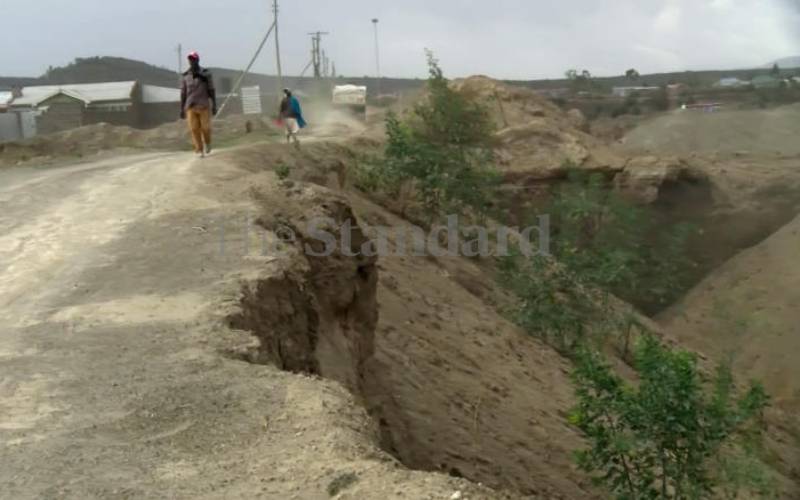×
The Standard e-Paper
Smart Minds Choose Us

Residents of Mzee wa Nyama in Nakuru Town East have appealed to the government to end sand harvesting at local quarries to save them from health and safety hazards.
Ms Reginah Wanjohi, who moved there a decade ago, said the excavation of sand was happening too close to the road, making it risky for users. “A slight tremor or a heavy downpour will cut us off from accessing our homes,” said Ms Wanjohi.